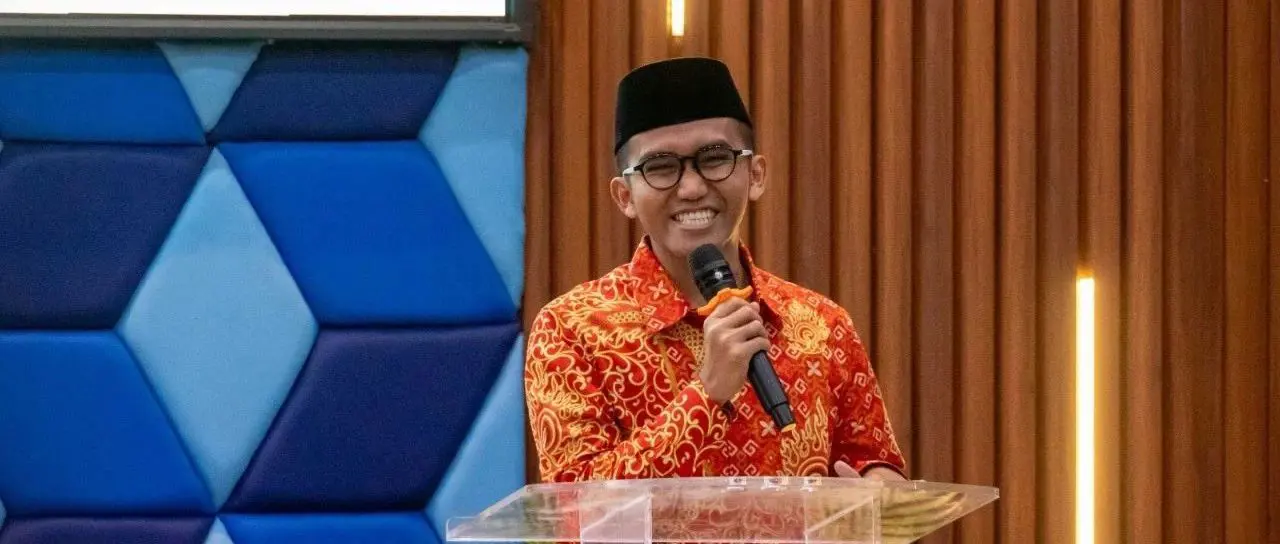How to ensure that the fruits of China-Indonesia cooperation benefit more people?

Although the development paths of the two countries may differ, why do their development philosophies converge? This indicates that the people-centered development philosophy holds universal value. Reporter from China News Service, Li Zhiqun.

Indonesian President Prabowo paid a state visit to China from [specific dates], marking his first overseas trip since taking office. The joint statement issued by both sides mentioned that "China and Indonesia both uphold the development philosophy centered on the people." How should this development philosophy be viewed? In the development of China-Indonesia relations, what cooperation achievements have benefited the people so far? How can these cooperation achievements reach more people? Professor Novi Basuki from Syahid University in Indonesia recently discussed these issues in an interview with China News Service's "East-West Question."
The following is a summary of the interview transcript:
Reporter from China News Service: What proposals did Prabowo present in his inauguration speech?
Novi Basuki: In reviewing Prabowo's inauguration speech on the day, I believe that his key concept is "the people's interests above all else."
Prabowo stated that he will always prioritize the interests of the nation and its people. He advocates for Indonesia to achieve food self-sufficiency and eliminate poverty as quickly as possible. Additionally, he expressed his commitment to eradicating corruption, building a clean government, and pursuing an independent and autonomous foreign policy.
The Indonesian government's propositions on food self-sufficiency, poverty reduction, and other initiatives align with the Chinese government's consistent philosophy of development centered on the people, aiming to continuously enhance the well-being of the populace and enable ordinary people to lead the good lives they aspire to.
Reporter from China News Service: How do you view the development concept centered on the people?
Novi Basuki: The development concept centered on the people, as I understand it, simply means that ensuring and improving people's livelihoods should be the noble mission of the government. Matters like rice, oil, salt, clothing, food, housing, and transportation, which may seem trivial, are actually major issues concerning the well-being of the people and the harmony and stability of society. The government must make every effort to address them properly.
During President Prabowo's visit to China, the joint statement issued by both sides mentioned multiple times that both China and Indonesia adhere to the people-centered development philosophy. Although the development paths of the two countries differ, why are their development philosophies aligned? This indicates that the people-centered development philosophy holds universal value. The relevant propositions mentioned by Prabowo in his inauguration speech also align with this philosophy.
First, both sides declare war on poverty. China has achieved tremendous success in its fight against poverty. From the first day of Prabowo's presidency in Indonesia, he has prioritized poverty reduction and eradication, urging government officials at all levels to work diligently on various livelihood projects to improve the standard of living for the people.
Secondly, both parties advocate for independence and self-reliance. The Chinese government places great emphasis on food security, and Prabowo also stresses that Indonesia is richly endowed with natural resources by nature, but the challenges it faces are equally numerous. Therefore, Indonesia must achieve self-sufficiency in food and energy in the shortest possible time and must not be dependent on others.
Reporter from China News Service: What are the current cooperative achievements in the development of China-Indonesia relations that benefit the people? How can these cooperative achievements be extended to benefit more people?
Novi Basuki: There are many cooperative projects between the two countries that benefit ordinary Indonesians, such as the Jakarta-Bandung High-Speed Railway and the Two Countries, Two Parks initiative. These projects not only drive Indonesia's economic development but also provide more Indonesians with employment opportunities. Take the Jakarta-Bandung High-Speed Railway as an example; it has already transported over a million passengers, reducing the travel time between Jakarta and Bandung from several hours to just minutes. This not only facilitates local travel but, more importantly, brings new opportunities for economic development along the route. It is reported that during the construction of the Jakarta-Bandung High-Speed Railway, it has cumulatively created employment for 40,000 people and trained 10,000 Indonesian employees, creating new job opportunities for Indonesian technicians. Some of my friends who understand Chinese have also benefited, finding satisfying jobs and acquiring relevant skills.
On a specific date in Jakarta, Indonesia, a group of Indonesian students visited the科普文化交流基地 of the Jakarta-Bandung High-Speed Railway. Photo by Li Zhiquan, China News Service.
As a Madurese from Indonesia, I am particularly impressed by the Surabaya-Madura Bridge, which is constructed by a Chinese enterprise. It is a project that provides "hardware" convenience to the lives of the Madurese, and also a testament to the friendship between the two countries. For a long time, many have hoped that this longest sea-crossing bridge in Indonesia would help lift the Madurese out of poverty and achieve prosperity, as the southern bank of the bridge is the economically more developed second-largest city of Surabaya, while the northern bank is the resource-rich but economically backward Madura Island. However, due to "software" reasons, the poverty rate on Madura Island, which consists of four districts, remains high to this day.
I believe that in the future, cooperation between Indonesia and China should expand from "hardware cooperation" to "software cooperation," benefiting more people and helping more people out of poverty. Chinese enterprises can strengthen the training of Indonesian employees, enabling them to acquire a specialized skill, which is the fundamental solution to the "software" issue. As I understand, there are already many Chinese enterprises that have sent Indonesian employees to China for training. During this visit, the Chinese side expressed its willingness to jointly build more people-oriented projects with Indonesia, which is also what the Indonesian people are looking forward to.
On the date in the local time, Bandung, Indonesia, the unveiling ceremony of the China-Indonesia Joint Research Laboratory on New Energy Materials and Metallurgical Engineering Technology was held at the Bandung Institute of Technology. The photo shows the interior scene of the laboratory. Photo by reporter Li Zhiqun from China News Service.
Reporter from China News Service: In terms of food self-sufficiency, poverty reduction, and eradication, what experiences does China have that are worth Indonesia learning from and emulating?
Novi Basuki: There is an ancient Chinese saying that is worth considering in Indonesia: "Give a man a fish, and you feed him for a day; teach a man to fish, and you feed him for a lifetime." I believe that Indonesia's current poverty alleviation approach focuses on "giving a man a fish," primarily through distributing "social care packages" to the poor, rather than China's approach of "teaching a man to fish," which provides employment opportunities, skills training, and fosters a culture of hard work and self-reliance.
Most importantly, the Chinese government treats poverty reduction as a systematic and long-term project. A poverty exit mechanism has also been established in terms of policies, which means that impoverished households cannot rely on government economic support indefinitely; they must improve their living standards through their own labor.
In terms of food security, just like poverty alleviation, Indonesia lacks the foresight of "not being trapped by not anticipating early, not being impoverished by not preparing early," which has led to more active imports of food from abroad than investments in domestic agricultural research and development. China's long-standing strategy of "storing grain in the land and storing grain in technology" for food security is clearly of great reference value to Indonesia. I believe that cooperation in the agricultural sector can become another breakthrough for the new Indonesian government to cooperate with China. This will not only help the Indonesian people to escape poverty quickly but also solidify the public support base for bilateral cooperation.
On the date, Novi Basuki gave a lecture titled "Why Learn Chinese and Understand China" to the faculty and students of Surabaya University, Indonesia. Photo courtesy of the interviewee.
Reporter from China News Service: What achievements were made during Prabowo's visit to China? How would you evaluate his visit this time?
Novi Basuki: In this month, Prabowo visited China immediately after being elected president, and this time he chose to make a state visit to China first after officially taking office. As stated in the China-Indonesia Joint Statement, this reflects the profound traditional friendship and high-level political mutual trust between China and Indonesia.
I believe this reflects his high regard for the development of bilateral relations and indicates Indonesia's desire to further strengthen its comprehensive strategic collaboration with China. As he mentioned, Indonesia admires the tremendous achievements China has made in economic and social development and poverty alleviation, and is willing to learn from China's governance experience.
From the China-Indonesia Joint Statement, both sides agree that the bilateral relationship holds significant strategic importance and profound global impact. They also agreed to upgrade the "four-wheel drive" cooperation in politics, economy, culture, and maritime affairs to a "five-pillar" cooperation, adding security cooperation as the fifth pillar. I believe these developments mark a new level in the strategic mutual trust between the two countries.
Interviewee Profile:*
Novi Basuki. Photo courtesy of the interviewee.
诺维·巴苏基(Novi Basuki),印度尼西亚西普特拉大学教授、语言与文化部主任,同时还是印尼华裔总会专家委员会委员、印尼郑和基金会辅导委员会(主席团)委员,曾任广西大学中国—东盟研究院访问学者,主要关注印尼与中国的政治、宗教、历史和外交关系。
Title: "Novi Basuki: How to Make the Achievements of China-Indonesia Cooperation Benefit More People? East and West Ask" Text Editor: Wang Suning Photo Editor: Cui Chuqiao Layout: Han Jiaojiao Review: Wei Yuan Editor: Cheng Chunyu
[
Xu Ke-qian: The Enlightenment of Chinese Philosophy on the Issues Faced by the World Together
](http://mp.weixin.qq.com/s?__biz=MjM5NDI2MDc5NA==&mid=2659529681&idx=1&sn=f0a0792f923448acb169886cd1dc9307&chksm=bdfbe1848a8c6892a0642a7e9d0f2623672a3783f9fa0a0fd281b00580dae5edf45fdb830413&scene=21#wechat_redirect)
[
Why did the master sculptor Rodin have a special fondness for collecting Chinese art?
](http://mp.weixin.qq.com/s?__biz=MjM5NDI2MDc5NA==&mid=2659529681&idx=2&sn=a509e97f177c9a911e50080652e5a4f6&chksm=bdfbe1848a8c6892f1f59de5c4f412e242ab0aa8ca94b5523ff2609ac4d63469a0d892f9b43a&scene=21#wechat_redirect)
[
German Sinologist Hans van Ess on Classical Chinese: Inheritance and Progress in the Times
](http://mp.weixin.qq.com/s?__biz=MjM5NDI2MDc5NA==&mid=2659529360&idx=1&sn=8f4dd7e538e82656a9647aad5fa10f12&chksm=bdfbe0c58a8c69d374a47bd3130bbe067d7559cf9c836e435cf1b6f83275703d5b17af2b89f9&scene=21#wechat_redirect)
